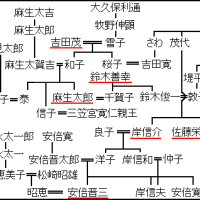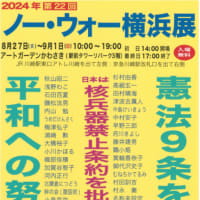After their defeat as U.S. vassal states, Germany and Japan have much in common.
Both countries are defined as enemy states by the United Nations (enemy clause), and both are subject to attack by U.S. (NATO) forces in their own countries at any time.
Since this is a secret and taboo, at least in Japan, it naturally creates a contradiction between domestic politics and diplomacy, but no one has pointed out this contradiction. This contradiction has already reached a point where it cannot be deceptive.
アメリカ属国としての敗戦後ドイツと日本には共通点が多い。
国連では敵国として規定(敵国条項)され、両国はいつでも自国内のアメリカ(NATO)軍から攻撃を受ける状況だ。
このことは少なくとも日本国内では秘密でありタブーだから、当然、国内政治と外交に矛盾が生じるが、この矛盾を指摘する者はいない。この矛盾はもう既に誤魔化しきれないところまできている。
“The policy of the USA has always been to prevent Germany and Russia from cooperating more closely”
This post is also available in: German
Historical, political and economic background of the Ukraine war
Jacques Baud holds a master’s degree in Econometrics and a postgraduate degree in International Security from the Graduate Institute of International Relations in Geneva and was a Colonel in the Swiss Army. He worked for the Swiss Strategic Intelligence Service and was an advisor on the security of refugee camps in Eastern Zaire during the Rwandan war (UNHCR – Zaire/Congo, 1995-1996). He worked for the DPKO (Department of Peacekeeping Operations) of the United Nations in New York (1997-99), founded the International Centre for Humanitarian Demining in Geneva (CIGHD) and the Information Management System for Mine Action (IMSMA). He contributed to the introduction of the concept of intelligence in UN peace operations and headed the first integrated UN Joint Mission Analysis Centre (JMAC) in Sudan (2005-06). He was head of the Peace Policy and Doctrine Division of the UN Department of Peacekeeping Operations in New York (2009-11) and of the UN Expert Group on Security Sector Reform and the Rule of Law, worked in Nato and is the author of several books on intelligence, asymmetric warfare, terrorism and disinformation.
Mr Baud, you know the region where there is war now. What conclusions have you drawn from the last few days, and how could it have come to this?
Jacques Baud: I know the region we are talking about quite well. I was with the FDFA [Swiss Federal Department of Foreign Affairs] and on its behalf I was seconded to NATO for five years top lead the fight against the proliferation of small arms. I contributed to projects in Ukraine after 2014. In addition, I know Russia, NATO, Ukraine and the related environment very well due to my previous job in strategic intelligence. I speak Russian and have access to documents that few people in the West look at.
You are an expert on the situation in and around Ukraine. Your professional activity brought you to the current crisis region. How do you perceive what is happening?
It is crazy, we can even say there is a real hysteria. What strikes me, and what bothers me a lot, is that no one is asking the question why the Russians launched their operation. No one wants to advocate war, and certainly not me. But as the former head of “Policy and Doctrine” in the UN Department of Peacekeeping Operations in New York for two years, I always ask myself the question: How did we get to this point of starting a war?
What was your task there?
It was to understand how wars happen, what factors lead to peace, and what can be done to avoid casualties or how to prevent war. If you don’t understand how war happens, then you can’t find a solution. We are exactly in this situation. Every country is imposing its own sanctions against Russia, and we know very well that this is going nowhere. What particularly shocked me was the statement by the Minister of Economy in France that they want to destroy Russia’s economy with the aim of making the Russian people suffer. Such a statement is outrageous.
Russia’s goal of demilitarization and denazification
...
























